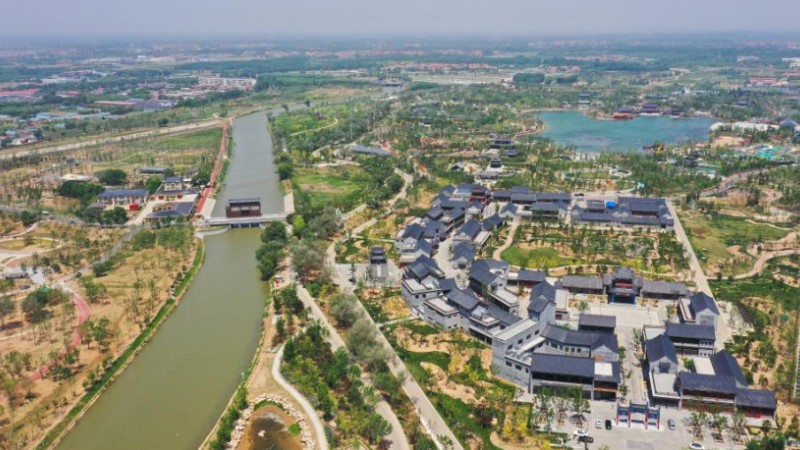Water-use rights trading quenches thirst of arid land
YINCHUAN, May 26 (Xinhua) -- In a cowshed in a rural area of northwest China's Ningxia Hui Autonomous Region, herds of cattle are guzzling water from a four-meter-long trough, which automatically refills itself when the water level nears the bottom.
Although this modern facility costs up to 1,000 yuan (about 141 U.S. dollars), it has gained popularity among cattle farmers in the water-starved Xihaigu area where per capita water resources account for less than 8 percent of the national average level.
"If we used the traditional stone trough, the cattle would cause the water to splash around. Half of the water would be wasted," said Lan Wenming, owner of a major cattle breeding base in Yuanzhou District in the city of Guyuan in Xihaigu.
The new equipment only allows a stipulated amount of water in the trough and average daily water consumption per head of cattle can be cut from 30 Chinese cents to 20, he added.
Ningxia has long suffered from limited water resources due to its dry climate. To promote the efficient use of water, the region has initiated water-use rights reform and launched a water-use rights trading scheme in 2021, with Yuanzhou District as a pilot zone.
Similar to carbon emissions trading, the scheme allows for buying and selling of water-use quotas to reallocate water resources through a market-based approach.
Water-use quotas are assigned to villages, enterprises and major breeding farms based on their planting area, production scale, number of livestock and other factors.
With 400 heads of beef cattle, Lan's breeding base has a daily water-use ceiling of 50 liters per head of cattle. If his water consumption exceeds the cap, Lan will not only face higher water bills but also have to pay extra to purchase unused quotas from those who consume less water.
"The reform is an effective water-saving incentive. For those who use less water, the surplus quotas can either be reserved to expand production or sold to others as assets," said Yin Hongjie, a senior engineer from the water authority in Yuanzhou District.
Since the launch of the reform, a total of 186 water-use rights transactions, involving 105.3 million cubic meters of water, have been recorded in the region, with the total transaction value amounting to 380 million yuan.
The reform has also turned water into a valuable asset, as water-use quotas can be used as collateral. So far, eight banks have provided pledging, credit and lending services related to water-use quotas, issuing 450 million yuan of loans in this regard.
Last year, three government departments including the Ministry of Water Resources jointly issued a guideline on water-use rights reform, vowing to further improve China's water-use rights system, intensify transaction supervision and establish a unified national water-use trading market by 2025.
Photos
Related Stories
- China's investment in water conservancy up 76.2 pct in Q1
- Middle route of China's mega water diversion project benefits over 85 mln people
- Western China dry region boosts water conservation, management
- Nation shares water-governance practices
- China endeavors to promote industrial water treatment technology
Copyright © 2023 People's Daily Online. All Rights Reserved.









